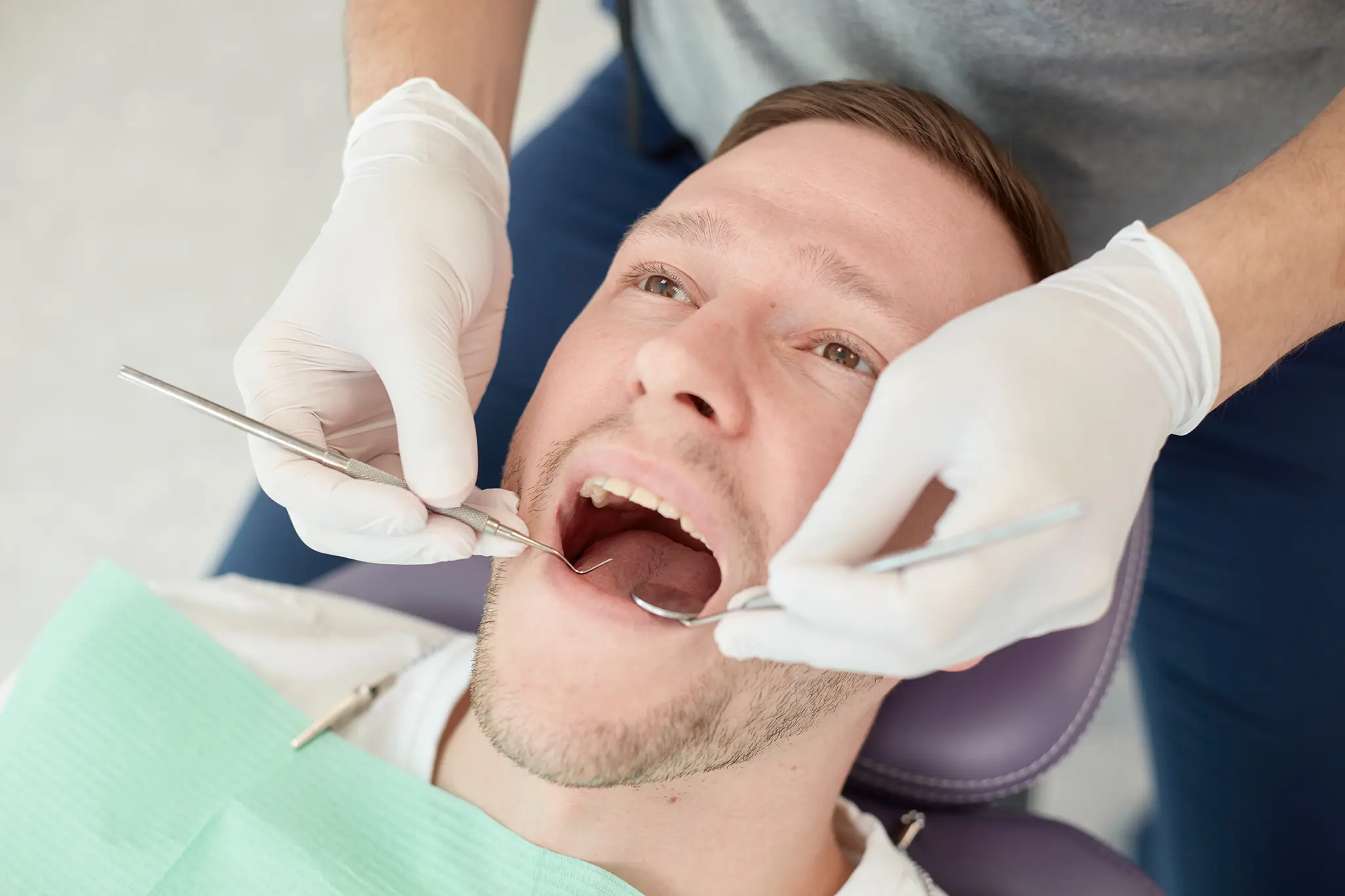Oral surgery - restoration of oral health and smile
Oral surgery covers various oral interventions that are performed in the dental chair. The most common intervention is tooth extraction, including that of wisdom teeth. Oral surgery eliminates the source of infection in patients, eases toothache, removes irremediable teeth, as well as restores both missing teeth by implants and hard and soft tissues (i.e. bone and gum).

Surgical procedures solve difficult oral issues that can no longer be resolved with more conservative methods. These problems include severely decayed teeth with a poor prognosis, discomfort and pain in the wisdom teeth, or, on the contrary, the absence of a tooth and the desire to replace it with a dental implant. The installation of a dental implant consists in replacing the missing tooth with an “artificial root”, which is a titanium alloy screw. A few months later, a zirconium crown is placed on the implant. Dental implants can significantly improve the aesthetics and function of the dentition.
Most often, oral surgery is performed in a hospital setting (however, with no hospital stay). In some cases, when the patient has a strong fear of the dentist or for health reasons, surgical treatment can be performed under general anesthesia or sedation (mild anesthesia).
Dental surgery will improve your oral health and boost your self-esteem!
Dental surgery is an integral part of dentistry, which allows the patient to get rid of decayed teeth, thereby limiting the spread of infection and inflammation from the damaged tooth to others. Removing the source of infection within the mouth is the basis for restoring dental health and improving overall well-being. Extracted teeth are replaced with dental implants to restore chewing function and improve aesthetics. Thus, a dental implant makes it possible to fill the space of a missing tooth. It looks natural and harmonious in the oral cavity.


A successful surgical process is based on joint efforts of the patient and the dentist
The success of any surgical procedure in dentistry depends on both the doctor and the patient and their joint efforts. The treatment plan is patient-based depending on personal needs. The planning of surgical procedures begins with compiling a thorough dental history and evaluating X-rays and all necessary parameters. Modern technologies and equipment are extremely advanced and allow us to achieve the exact desired and predictable result in surgery. The ability to plan dental treatment reduces the number of possible complications, shortens the patient’s recovery period, and gives the best result achievable in a particular situation.
In a post-surgery period, the patient must strictly adhere to the doctor’s advice. In case of non-compliance with the advice or poor oral hygiene, the result of treatment may deteriorate. It is for this reason that interacting with the dentist and engaging the patient in the treatment process are crucial. The patient is responsible for maintaining the result.
Surgical procedures in dentistry help maintain and improve oral health, create a healthy and beautiful smile, and boost the patient’s self-confidence!
If you wish to remove an aching wisdom tooth or have an implant to replace a missing tooth, please contact us!
Book an appointment










